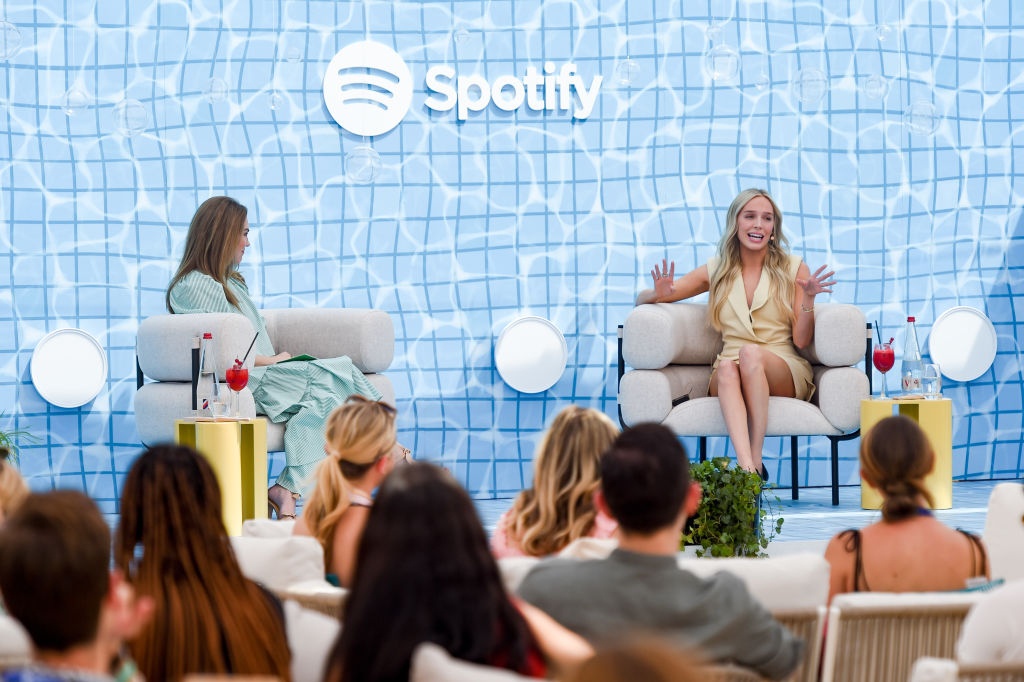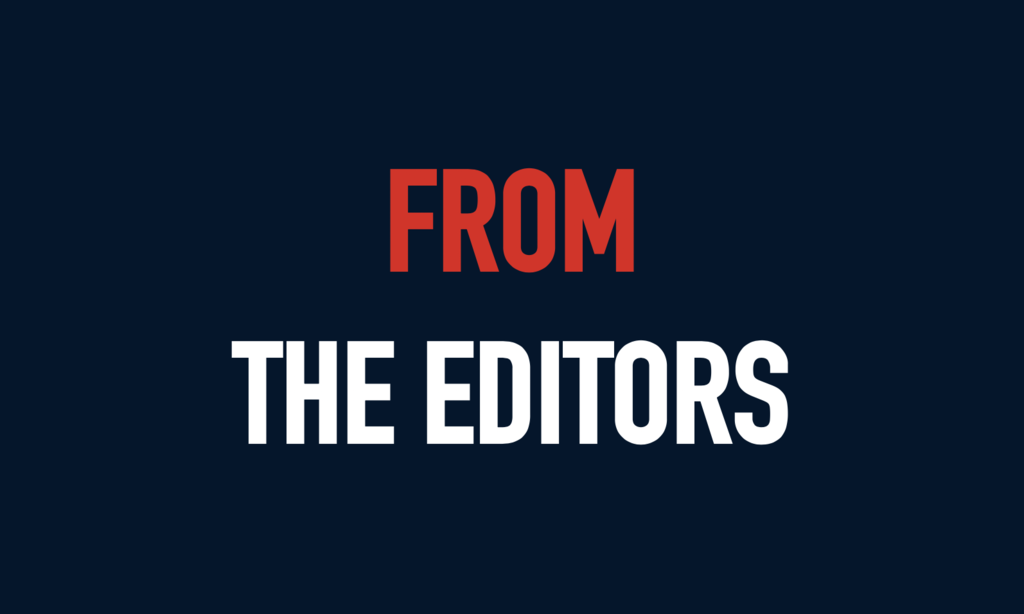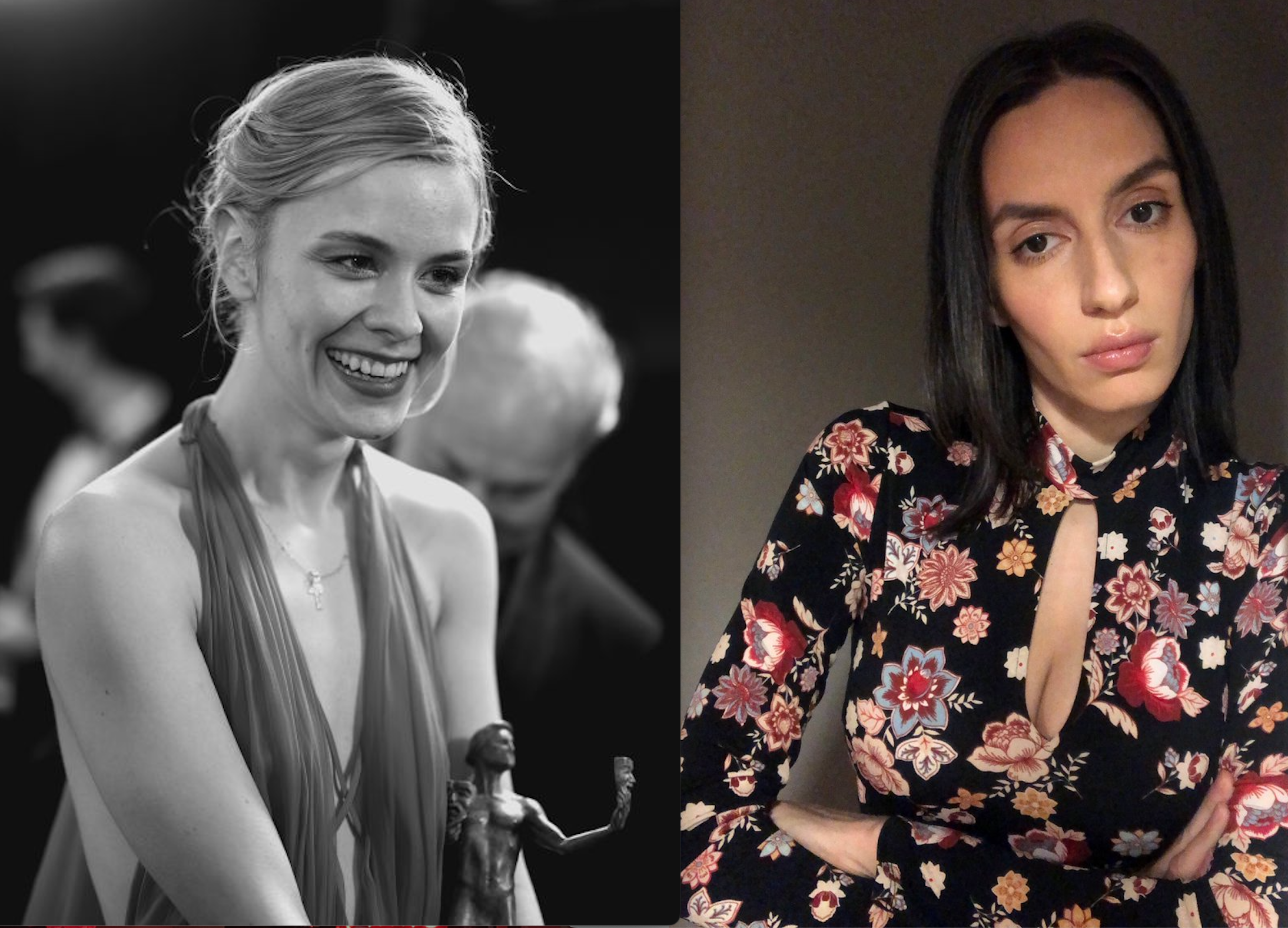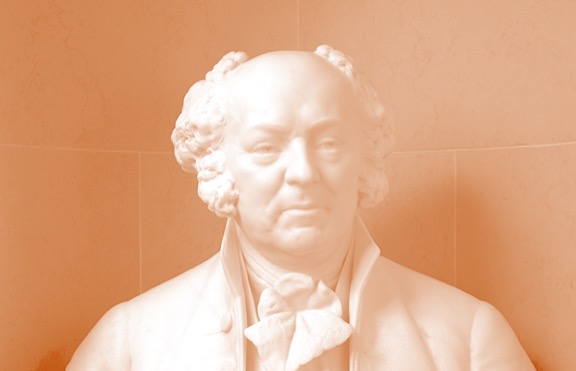The American people should demand an answer.
The Millionaire Slut Apologists

How Call Her Daddy made bank off of lost young women.
Five years is a long time in a young woman’s life—it’s the enormous difference between 24 and 29, or 26 and 31. That’s how long it’s been since Alex Cooper and Sofia Franklyn launched the Call Her Daddy podcast. Five years later, the two are still influencing millions of young women. Though they have separated (both from their original platform, Barstool Sports, and from each other) Alex is hosting season four of the show; she has cashed in a cool 60 million from Spotify while living in L.A. engaged to a rich man. Sofia is still hustling, albeit making significantly less than Alex.
The message of Alex and Sofia when the show premiered was not “live laugh love.” It was “be crazy, diet, have sex with rich men, then lie to your future husband.” They would regularly sprinkle in tips on how to manipulate men for presents and funny stories for your friends.
Body Count? Just lie.
Plan B? Just pop it with a bag of M&Ms and make the guy Venmo you.
Alex and Sofia were both anthropologists and slut-apologists, talking frankly about how hot, skinny girls have a better time in life, and ugly women should expect to make some sacrifices.
Within the first ten episodes they were charting just behind Joe Rogan. Barstool Sports had a hit show, while they could keep it.
It felt rebellious to listen to something the illiberal media hated so much. I, along with all of my girlfriends, listened to Call Her Daddy religiously every week, all through college. When I interned in D.C. in a conservative office, it was a regular, whispered topic of conversation between every girl in my internship program—do you listen? Don’t you love it? “Daddy gang?” we would jokingly ask.
All the cool girls tuned in. I even bought the original cropped baby blue sweatshirt.
Looking back, no one was served by the lifestyle that the podcast promoted. But it seemed okay, because the hosts were transparent about their problematic behavior. After all, as long as you’re aware that your slutty phase isn’t forever, it won’t hurt in the long run, right?
Alex and Sofia were living out a main character’s dream: tons of sex, attention from professional athletes and children of the wealthy ivy elite, without having to sacrifice any of their community prestige. Talking about oral sex and private jets only elevated their status in the eyes of their audience.
They were not pretending to be righteous feminists (at least at that time), and they were not pretending to be liberated women. They were hot girls holding the internet, and all of their boyfriends, by the balls.
It was addictive to listen to, offering a peek into a lifestyle most young women could only microdose by hooking up with a star athlete on campus or watching escapist chick-flicks.
Alex and Sofia were, to my knowledge, the first influencers to honestly talk about hot girl privilege. They maintain their rosters (the list of men they’re sleeping with) like a hedge fund manager tracks IPOs.
“We are nobodies,” Sofia said on the opening episode. “I’m just here to ride Alex’s coattails.” She was unintentionally foreshadowing the podcast split, where the main criticism was that she did none of the brand building, editing, or content creation.
The second episode, “If you’re a 5 or a 6, die for that dick,” clarified that not all women are hot, and beauty has power. But they announced their willingness to shine their light indiscriminately, advancing the sex conquests of the ugly and the cute alike. In our body positive, universalist culture, it was refreshing to hear objectively beautiful women say what we suspect they are all thinking.
But episode three, “The Gluck Gluck 9000,” is where Call Her Daddy was really born. They described in detail how to give great head, and America listened.
Their brand was different from that of other influencers. Tana Mongue had been producing similar, personally exploitative content on the internet for many years, but she was functionally an orphan, partying in Las Vegas as a teenager before moving to L.A.—a more sympathetic story.
Alex and Sofia went to prestigious colleges, consistently dated wealthy and famous men and had loving supportive families. There was nothing raunchy or sad about their background, and I think that’s what drew women of similar demographics to their videos.
Look Back in Loneliness
I don’t listen anymore. The interviews sometimes have good clips that I catch online, but Alex mostly throws softballs and lets interviewees talk about whatever they want. It’s the ultimate PR dunk if you’re a mildly interesting celebrity and you love talking about your sex life whilst simultaneously receiving praise and sympathy for every problematic decision you’ve ever made. Sofia’s content is more true to the original version, but now it sounds less cute and rebellious, and more sad coming out of the mouth of a woman in her 30s. But, perhaps a person can be an eternal sugar baby, and the daddies just get older. I’m sure Sofia will continue to post and let us know.
Alex expresses embarrassment when magazines ask her about things she said on the podcast before, and mentioned on a more recent episodes of the podcast that the show’s previous message wasn’t necessarily rooted in kindness. It was okay that she talked about how pretty girls have a better time in life, but only because she learned from her superficiality. No one else needs to make that mistake (or steal her cultivated audience).
The original Call Her Daddy listeners are now in their mid-20s or nearing 30. With peak fertility years going by quickly, are we all prepared to be wives and mothers, or even just happy people with stable relationships?
Probably not. I know I’m still rowing upriver against my collegiate bad-habits, and so are a lot of my friends. There are more single young women now than ever before. BMI- and obesity-linked diseases are up. Fertility complications are increasingly common, perhaps due to broad use of Plan B and birth control, and a general lack of care and thought given to one’s reproductive organs.
So, are women better off today than we were five years ago when Call Her Daddy premiered? No—and neither are the hosts, though their wealth and fame allows them to conceal the tragedy of their stunted lives.
Much like Dave Portnoy can afford to be a divorcé nearing 50, with an exciting life and a surgically-enhanced young girlfriend, exceptions to rules exist. Not everyone needs to get married and create a family to be happy, but most people do. Some behaviors are truly destabilizing to normal people, even though they seem exciting at the time.
Joking around on a podcast is all well and good, until people take you seriously and the bill comes due. The naughty girl schtick wastes precious time in a woman’s life, distracting her with dishy brunch chatter while she quietly self-destructs. Call Her Daddy was a microcosm of everything that’s wrong with influencer culture: what makes for viral content doesn’t make for the good life.
The American Mind presents a range of perspectives. Views are writers’ own and do not necessarily represent those of The Claremont Institute.
The American Mind is a publication of the Claremont Institute, a non-profit 501(c)(3) organization, dedicated to restoring the principles of the American Founding to their rightful, preeminent authority in our national life. Interested in supporting our work? Gifts to the Claremont Institute are tax-deductible.
The Red Scare podcast brings a downtown dissident edge to the table.
The Whatever podcast’s ick factor outweighs its usefulness.
Part II: Honor and self-constraint can stave off tyranny.
On campus, today's forlorn meritocrats no longer believe what the apparatchiks are teaching them.






